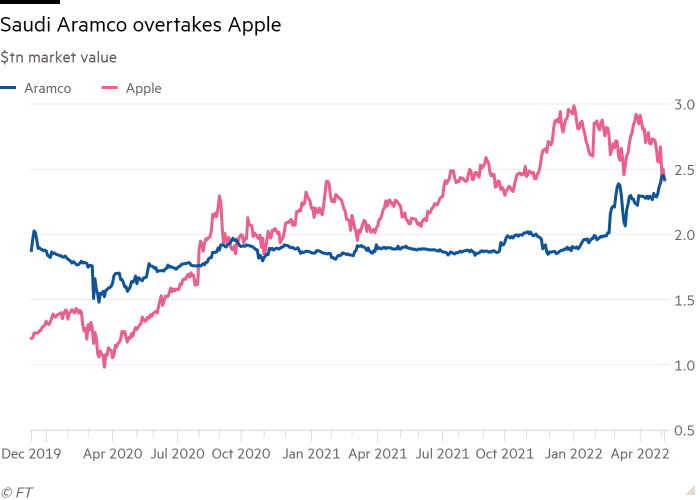Good morning. This article is an on-site version of our FirstFT newsletter. Sign up to our Asia, Europe/Africa or Americas edition to get it sent straight to your inbox every weekday morning
Turkish authorities have raised pressure on the country’s banks to limit corporate clients’ purchases of foreign currency in an effort to halt the lira’s slide.
Bankers in Istanbul said they were facing increased interference from the central bank, with officials probing corporate FX transactions worth as little as $1mn.
“Even for $1mn or $2mn, they are calling to check: who is the buyer?” said one senior Turkish banker. “They’re really anxious about the corporate flow.”
In some cases, commercial banks have been ordered to refuse to facilitate FX purchases for clients, especially those worth more than $5mn.
The intrusions are the latest unconventional tactic by Turkish officials to steady a currency that has fallen 45 per cent against the dollar over the past 12 months, sending inflation soaring. After four months of relative stability, the lira has slid close to 4 per cent in the past week.
With the financial sector under political pressure from President Recep Tayyip Erdoğan, bankers said they had little choice but to comply with the demands to seek approval for big-ticket foreign currency purchases.
Thanks for reading FirstFT Europe/Africa. Here’s the rest of the day’s news — George
The latest on the war in Ukraine
-
Agriculture: Ukraine has accused Russia of trying to destroy its agriculture sector by stealing valuable grain stocks and machinery, deliberately bombing farms and warehouses and blockading its Black Sea ports.
-
Oligarchs: Vladimir Potanin, who devised Russia’s infamous 1990s “loans for shares” programme, is bringing assets back under the Kremlin’s purview. His outsized importance to global metal markets has kept him off sanctions lists.
-
Oil ‘cartel’: Italy’s prime minister Mario Draghi has floated the creation of a “cartel” of oil consumers to cap prices following a meeting with Joe Biden that included talks on revamping energy markets.
-
Kherson: Local officials installed by Moscow in Kherson in southern Ukraine said they intended to ask President Vladimir Putin to join Russia, the clearest sign yet that the Kremlin plans to annex the region.

Five more stories in the news
1. EU threatens retaliation if UK ditches N Ireland protocol The EU has vowed to retaliate if the UK rips up a post-Brexit trade deal for Northern Ireland after London’s threat of unilateral action triggered alarm in Brussels and Washington. Joe Biden appealed to the UK to show “courage, co-operation and leadership” to settle the simmering dispute.
2. European corporate bonds suffer steepest sell-off in 20 years European corporate debt has been hit by its heaviest pullback on record over fears of high inflation and the threat of a recession. Bonds issued by highly rated eurozone companies have lost investors more than 10 per cent since the peak nine months ago.
3. UK delays plans to force environmental disclosure Ministers made a last-minute decision to drop a requirement for big companies and asset managers to disclose environmental impacts from Tuesday’s Queen’s Speech, according to government sources. The move came amid a wider retreat from tightening corporate governance.
4. Elliott to close Tokyo office and shift Asia investing to London US hedge fund firm Elliott Management is planning to shut its office in Tokyo, its last Asia outpost, and shift responsibility for investments in the region to London. The firm is an active investor in Japan, where it has built stakes in SoftBank and Toshiba.
5. Saudi Aramco now world’s most valuable company Saudi Aramco has overtaken Apple as the world’s most valuable company after higher oil prices pushed the crude exporter’s share price to record levels while a broad tech stock sell-off weighed on the iPhone maker.
-
More on companies: Telecoms group Vodafone is in talks to combine its UK operations with Three UK, the mobile operator owned by Hong Kong infrastructure conglomerate CK Hutchison.

Coronavirus news digest
-
China has dismissed rare WHO criticism of its tough zero-Covid policy, saying it was “irresponsible” to question its reliance on lockdowns.
-
The FT View: China’s Xi Jinping should recognise that his rigidity is hurting his people and his economy. He needs to adopt a more flexible approach.
-
New Zealand will reopen its borders two months ahead of schedule, ending more than two years of severe entry restrictions.
-
Toyota warned its profits could fall by a fifth this year because of rising energy costs and the doubling of raw material prices following supply disruption.
-
Lead your team’s return to the office by “managing up”. The latest Working It newsletter details tips on how to craft the best return-to-work policy.
The day ahead
Economic data Opec issues its monthly oil market report. Last week, the cartel agreed to a modest crude output increase. The UK releases a first-quarter gross domestic product estimate and monthly jobs report, and the US has April’s producer price index after consumer prices remained near a four-decade high at 8.3 per cent. India’s April CPI is out.
Corporate earnings Foxconn’s first-quarter results will give an indication of the damage to the tech supply chain and the impact of lockdowns in China. Other companies reporting include Aegon, Allianz, Bouygues, BT, Commerzbank, Hargreaves Lansdown, Nissan, RWE, Siemens and SoftBank, while Zurich Insurance has an update.
Meetings The European parliament’s foreign affairs committee hosts Finnish foreign minister Pekka Haavisto for a debate on European security challenges in light of the war in Ukraine.
Events The WHO is hosting a webinar on the tobacco industry’s “destructive practices” and “greenwashing tactics”. The European Gas Regulatory Forum, also known as the Madrid Forum, meets for its second and final day on development and decarbonisation of the EU gas market.
Join us in person or online at the FT Business of Luxury Summit on May 18-20 to hear from luxury leaders including British Vogue, Valentino, Zegna and YSL.
What else we’re reading
The mogul, the casino and the heist that rocked Mayfair In the summer of 2017, a man pulled off the first central London casino heist in decades. It was clear to staff that the incident at the Park Lane Club was no random burglary. Perhaps the crime had something to do with their boss. Or, maybe, it had been an inside job.
New York regenerates even as it frays The mass shooting on New York’s subway last month was the terrifying culmination of a degraded system that had become a haven for the homeless and those with untreated mental illness. Joshua Chaffin argues it also captured the modern reality of the city: a metropolis that is both fraying and rejuvenating itself.
BoE should make it clear when it gives us a kicking Last week, the Bank of England raised interest rates to the highest level in 13 years even as households face the largest cost of living squeeze in decades. There can be no doubt, Chris Giles writes: the BoE is giving us all a good kicking because it thinks that is the right thing to do.
‘New management, same story’ at Peloton Tuesday’s results left analysts asking old questions of the connected fitness company: is Peloton’s long-term vision realistic, and is it wise to be pursuing a mass-market strategy when it built its brand on the fanatical loyalty of a wealthy but far smaller group of customers?
FT best business books of May Addressing social class at work and navigating politics to get things done, as well as a guide to “superior management effectiveness” — our Work & Careers team review this month’s top titles.
Try this
These electric chopsticks cut your salt intake. No, really. Japanese people consume about twice the amount of salt recommended. A new gadget purports to help.

Thank you for reading and remember you can add FirstFT to myFT. You can also elect to receive a FirstFT push notification every morning on the app. Send your recommendations and feedback to firstft@ft.com. Sign up here.


